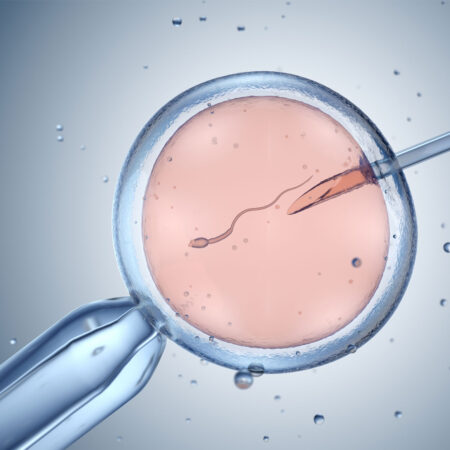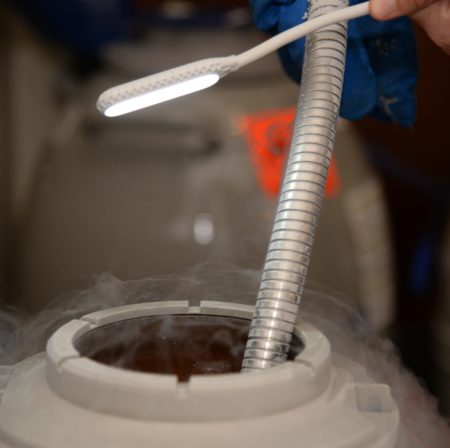We Are The IVF Leaders
Ovation® Fertility is a results-driven national network providing leading-edge treatment through the hands and minds of the world’s foremost reproductive experts. Ovation scientists and partner physicians learn from each other’s successes, collaborate on award-winning research, track key performance indicators nationwide, standardize to best practices, and continuously improve quality and outcomes for patients.
Our scientific teams are renowned for high IVF pregnancy rates and state-of-the-art practices and protocols. Our advanced facilities include IVF and andrology labs, where our skilled andrologists, embryologists, lab directors and support teams apply advanced training to help patients achieve IVF success. In addition to our core lab services, Ovation also provides ancillary IVF services to support patients who need donor eggs, gestational surrogacy and storage for their frozen reproductive materials.
Working collaboratively, Ovation’s diverse team produces more research and has greater insight into the science of fertility treatment. Data show that our scientists and clinicians achieve better outcomes, with fewer instances of multiple pregnancy and more singleton live births, than the vast majority of independent providers.
Working Collectively, Caring Individually

Unlock Your Career Potential
As one of the top five IVF service providers in the United States, Ovation is a fast-growing, exciting workplace. Our youngest IVF lab has been in continuous operation for more than 20 years, and the pioneering firsts that our partner physicians and staff scientists have achieved over the past three decades are nearly unmatched. With 14 IVF labs across 10 states, Ovation is always looking to add skills and talent to our team.

Partner
with Us
Ovation was built on one core philosophy: The larger we grow our scientific collaboration, the more we can leverage data to advance our collective clinical knowledge. Backed by Morgan Stanley Capital Partners, Ovation offers a unique affiliation model for physicians to benefit from a larger fertility platform. When Ovation acquires an IVF lab, that lab’s physician owners become Ovation shareholders and continue to play the leading role in patient care, retaining complete clinical control. Ovation works in the background to support the physicians’ clinical success. Join Ovation, and become part of a best-in-class network of fertility services providers delivering superior clinical results.





